Dear Families,
Ukraine and floods in Eastern Australia
As we continue the season of Lent we keep the people of Ukraine, as well as our neighbours in Queensland and NSW, who have been ravaged by floods, in our hearts. Project Compassion (which occurs every Lent, to support those most vulnerable) is a major fundraiser for Caritas Australia, the international aid agency of the Catholic Church, and also a partner agency with Caritas Ukraine.
Can you learn optimism?
I recently shared this piece with staff and thought it would be worthwhile to include for you too.
We are certainly experiencing challenging times. Being optimistic that we will successfully get through such time is more helpful and productive than doom and gloom. However, as we know, some people are more positive than others. Nelson Mandela says he didn’t know if his own optimism was due to nurture or nature.
In the book ‘Deliberate Optimism – Reclaiming the Joy in Education’, the authors argue that optimism can be learned, developed and maintained. They aren’t talking about blind, Pollyanna ignorance that everything is wonderful, but a positive outlook that things will get better and ultimately will be okay. They quote the key to success in developing optimism is Chinese philosopher Lao Tsu’s saying, “Thoughts lead to actions, actions lead to habits, habits lead to character, and character changes destiny.”
Psychologist and author, Dr Martin Seligman, believes humans can learn to be optimistic by unlearning non-productive thought patterns. He believes that to lead an optimistic life, you have to learn to argue with yourself in a non-negative way. He originated the ABC method.
Adversity – You are confronted with a challenge or difficult situation. Often, this is a decision that is made and you don’t agree with it.
Belief – Your default thinking or belief is that the decision was made to penalise you. Our interpretation of why the decision maker made this decision is very important and has a huge impact on how we respond. If we believe the intent behind the decision lacked consideration for us personally or was deliberately intended to harm us, then we are primed for revenge.
Consequences – The impact of your beliefs. You are hurt and upset and would like to get revenge on the person who made the decision. You decide that you will let everyone know how unhappy and disappointed you are. Defaulting to the ‘them’ and ‘us’ mentality is sometimes an automatic reaction. To develop optimism, Seligman advocates adding ‘D and E’ to the method.
Disputation – Our inner dialogue, where we argue with our thoughts, is a key practice for building optimism. We need to dispute our beliefs and be aware of how different perspectives change the consequences. Seligman says there are four ways you can dispute your beliefs more effectively.
Evidence – “What’s the evidence you have for and against the belief
Alternatives – “Is there another way to look at the adversity?”
Implications – “What’s the impact? Am I making a mountain out of a molehill?”
Usefulness – “Is this a good time for me to be thinking about this problem?”
If now is not the time, then either do something physically distracting, schedule another time to think things over or write down the negative thoughts and deal with them later. Disputing your negative thoughts might help you change your perception and how you respond to the adversity you are facing.
Energisation – Seligman highlights that when we dispute our negative thinking and replace it with reasoning that is reflective and grounded in beliefs about our best selves, we can change defeat and depression into hope and energy.
Whilst you might be thinking, “Well, it’s easy to list those steps, but can we really control our thoughts?” Yes, we can learn to control our thoughts. It’s not easy or even simple, but with practice it is a skill that one can develop and can have a positive impact on our life.
St Joseph’s Day and Harmony Day, 2022
The feast of St Joseph is this Saturday 19 March. As a school we will celebrate this occasion on Friday. Typically, we would gather for a whole school Mass, but as you are aware, this is not permitted at this time. Instead, there will be liturgies in classrooms.
Additionally, Harmony Day is also fast approaching (21 March). Harmony Day celebrates Australian multiculturalism, based on the successful integration of migrants into our community. It is also about inclusiveness, respect and belonging for all Australians, regardless of cultural or linguistic background, united by a set of core Australian values. Orange is the traditional colour to recognise Harmony Day.
Therefore, to acknowledge both the feast of St Joseph and Harmony Day, this Friday 18 March will be a Casual Clothes Day – promoting a splash of orange to be worn. There will also be extended play time for recess and zooper doopers will be distributed to children during lunch time.
Year 6 Student Leaders and SRC, 2022
I congratulate all the Year 6s on their student leadership positions for 2022. All our Year 6s have a leadership role within the school, with an aim to provide authentic student leadership opportunities. There are a variety of positions for the Year 6 cohort, including: SRC Executive; Social Justice Leaders; Library Leaders; Health and Wellbeing Leaders; STEM Leaders; Canteen Leaders; Student Newsletter Editors; Assembly Leaders; Sport Captains; School Tour Guides; Italian Leaders; Yard Leaders; Performing Arts Leaders; Futsal Leaders; and Road Crossing Monitors.
I also make mention of the newly elected students from Reception to Year 5 on being chosen as part of the Student Representative Council (SRC). There will be a new student chosen from each class for Semester Two. The SRC meet with Ingrid Douventzidis and Michael Musolino, whilst the SRC Executive meet with myself.
School Board, 2022
At the Annual General Meeting (AGM) on the 3rd March, the School Board for 2022 was elected. I thank all those who have nominated (or re-nominated), as well as those members continuing; for their willingness to be involved in not only Board meetings, but also the discussions and decision making for the future of our school.
I present to you the School Board for 2022:
President: Father Michael Romeo
Principal: Simon Mechis
Deputy Principal: Ingrid Douventzidis
Chairperson: John Flynn
Treasurer: Peter O’Loughlin
Deputy Chairperson: Daniel LaBella
Secretary: Michelle Page
Staff Representative: Bernardette Robinson
P&F Representative: TBC
Members: Luna Gaoni
Domenic Gullifa
Nadia Plawecki
David Uglesic
Ernie Icolaro
Aly Giannitto
Parents and Friends, 2022
A last reminder that tonight, Thursday 17 March at 7:00pm, there will be a P&F Meeting, online. If you are interested in joining, please email Ingrid Douventzidis with the subject line ‘P&F’ at: Ingrid@stjopayn.catholic.edu.au An invitational link will be sent to you.
No special skills or qualities are required to be part of the P&F – just a desire to share ideas and assist from time to time. Thank you for your consideration.
Parking, road safety, driver etiquette and being friendly to our neighbours
School drop-off and pick-up times are busy for everyone. The endeavour is for this to happen in a safe and courteous manner. Please demonstrate consideration and patience, as well as travelling slowly around the school, especially where marked (no faster than 25 km/h).
If not using ‘kiss and drop/collect’ on Marian Road, you may want to find a car park a little further away from the school; where you will not only discover that it is easier to locate a parking space, but also opportunity for some exercise with your child, and an extra chance to ‘connect’, as you walk your child to and from school. You could even plan to meet with another family at a designated point (for example at Payneham Oval), and then walk the 5 or 10 minutes to school.
Additionally, please be considerate of our neighbours, which includes not parking or standing with your vehicle in their driveways. Lastly, please ensure your child(ren) are keeping out of residents’ gardens.
COVID-19 Update
A reminder, in line with SA Health, to keep ourselves and others safe, please:
- aim for a prompt drop-off and pick-up;
- do not congregate with others in the community;
- continue to have your child focus on good hygiene and hand washing;
- note that face masks are strongly encouraged for students in Years 3-6; and
- keep your child(ren) home when they are experiencing any COVID-19 symptoms and have your child tested, notifying us as soon as possible if your child does test positive for COVID-19.
Isolating at home
As mentioned in the previous Parent Newsletter, at the moment, like all schools, we have children who are isolating at home (which may continue for some time). If your child is home, and not feeling well, the most important thing is that they focus on recovery.
Classroom teachers will endeavour to provide ‘learning continuity’, for those children who are isolating (either due to having COVID, or being a household contact). It is however important to note, that teachers are not providing online/remote learning. They are engaged in face-to-face teaching and learning with the students in their classroom.
I also provide the following links (which have been set-up by Catholic Education SA and the Department for Education) for you to access and use if required, during an isolation period.
https://www.cesa.catholic.edu.au/learning-online/information-for-families
https://www.education.sa.gov.au/
Wishing you well!
Simon Mechis

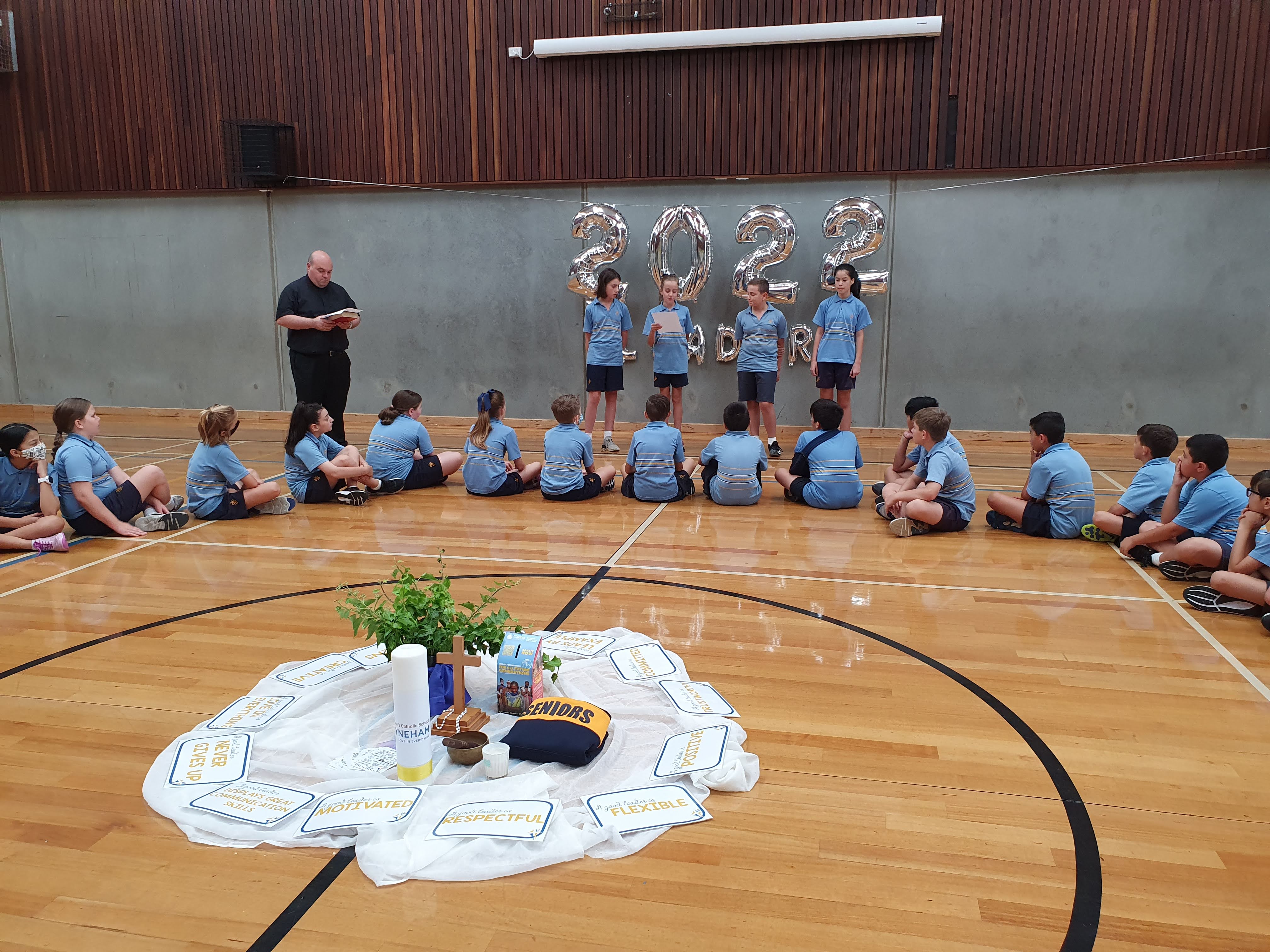


 Lots of families enjoying our fun intergenerational playgroup sessions – grandparents, aunts, mums and bubs too!
Lots of families enjoying our fun intergenerational playgroup sessions – grandparents, aunts, mums and bubs too!  bookings must be made each week via Qkr App.
bookings must be made each week via Qkr App.
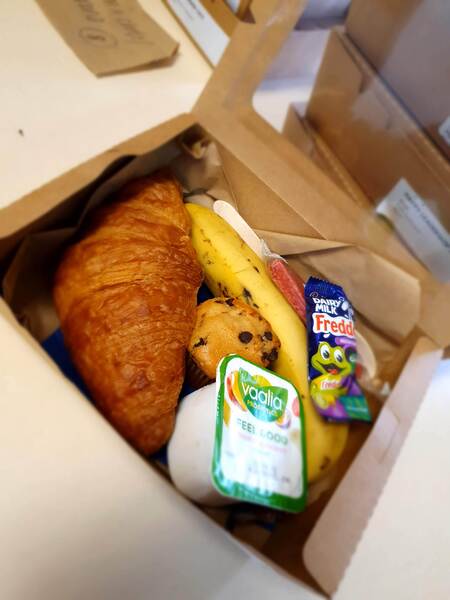
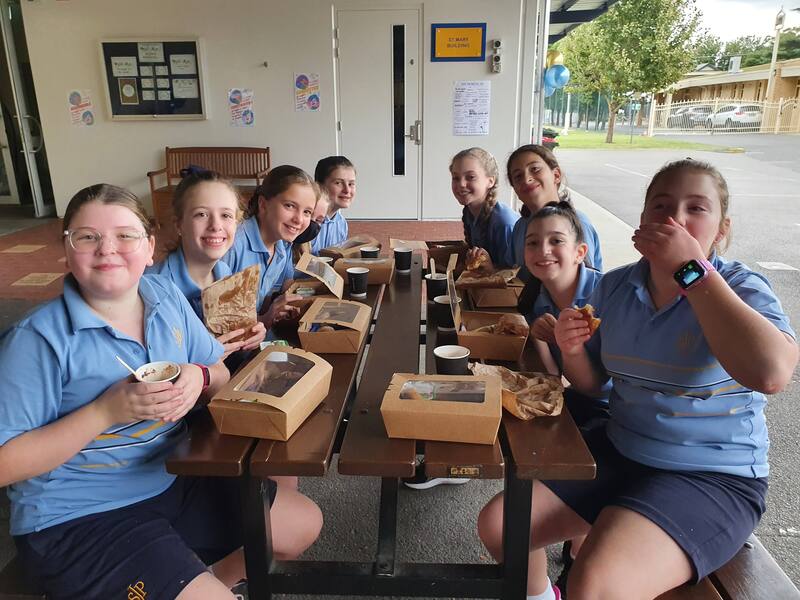
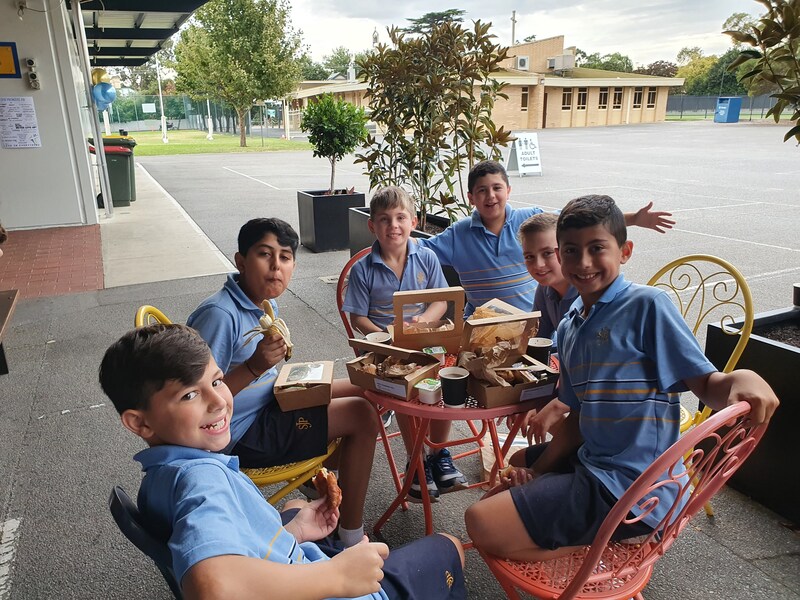

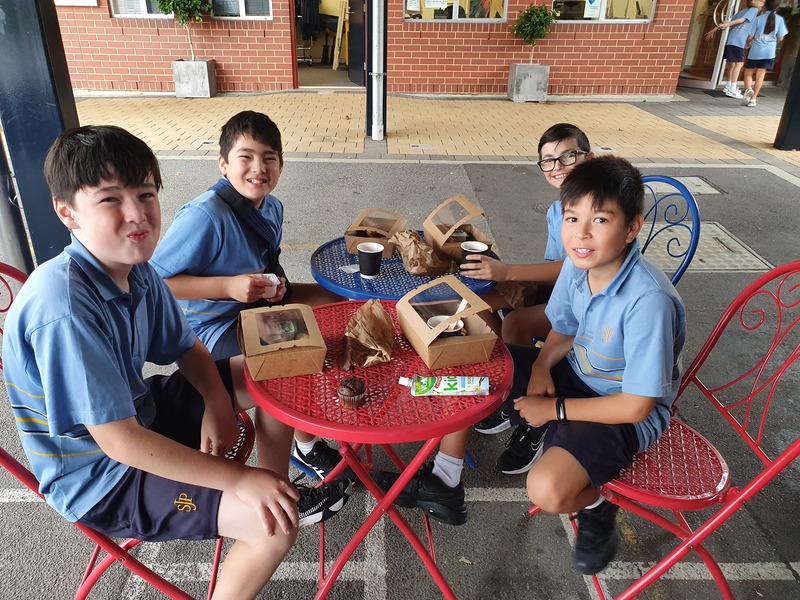
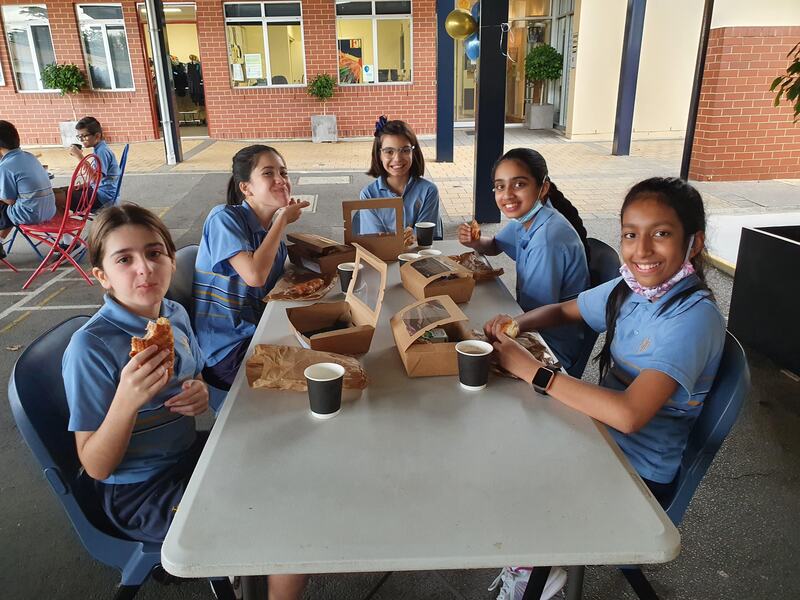
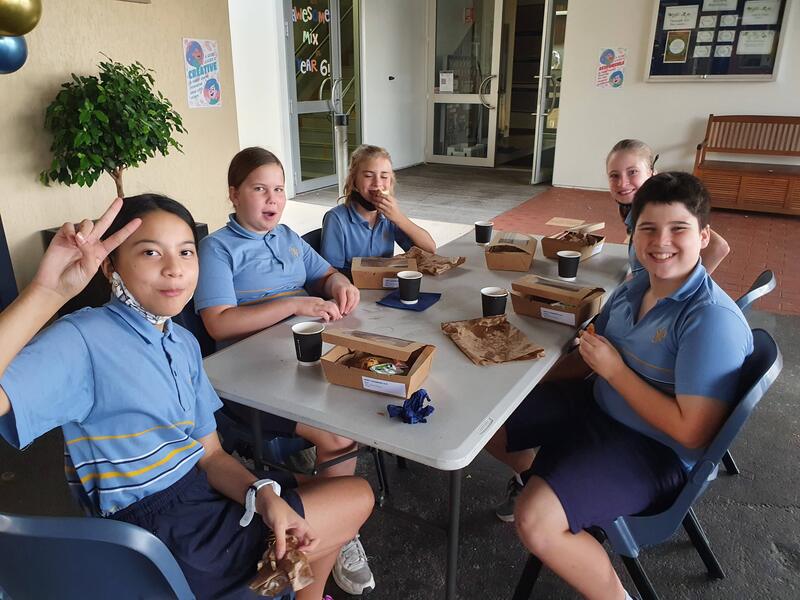
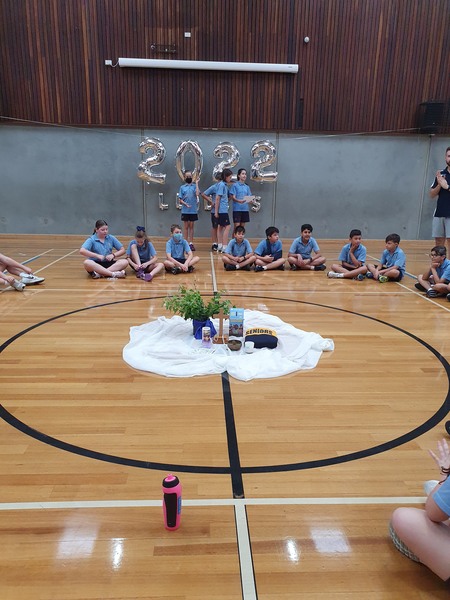
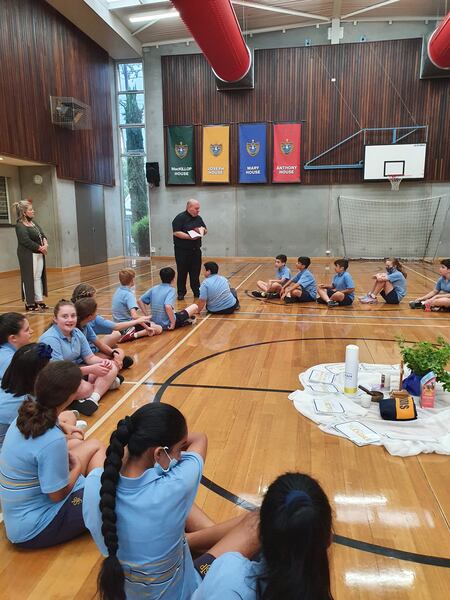
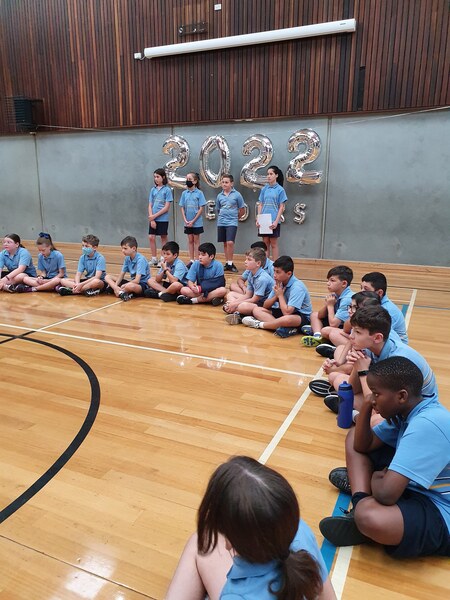
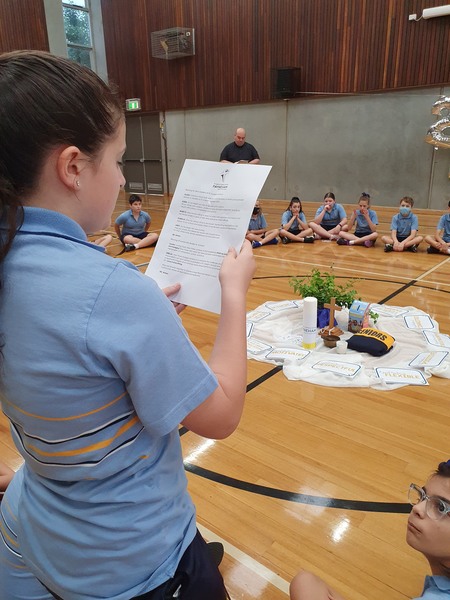

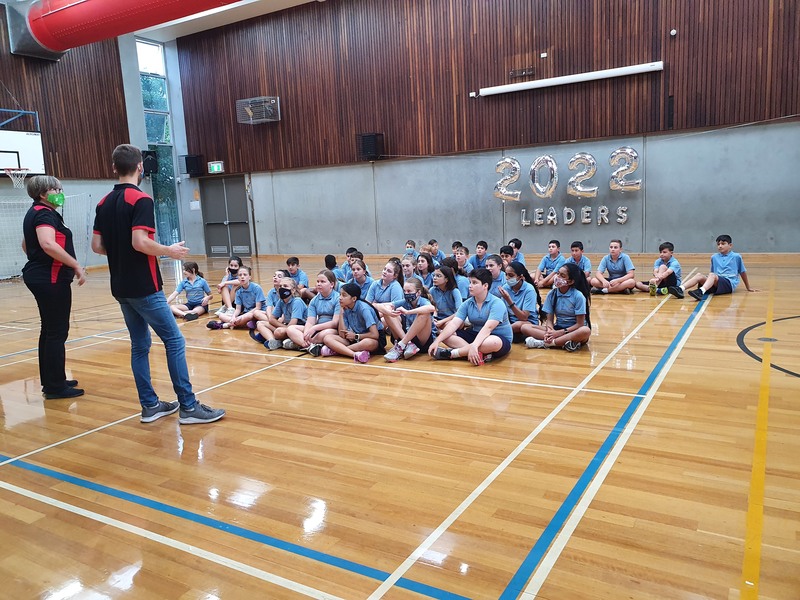
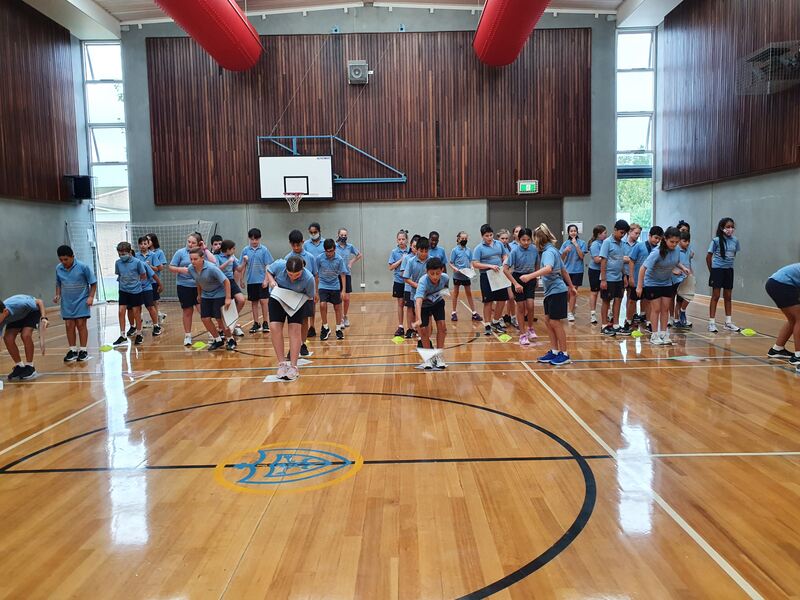
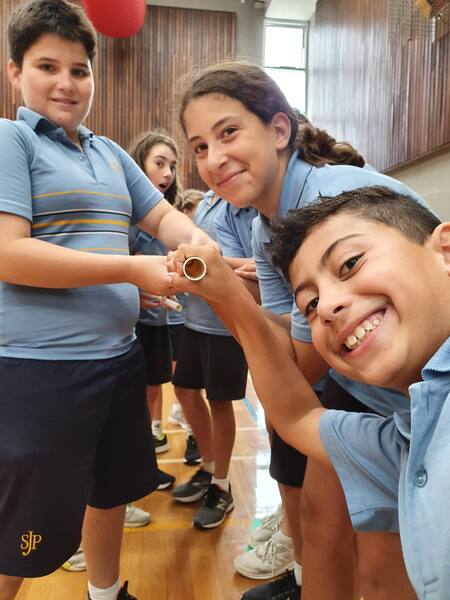

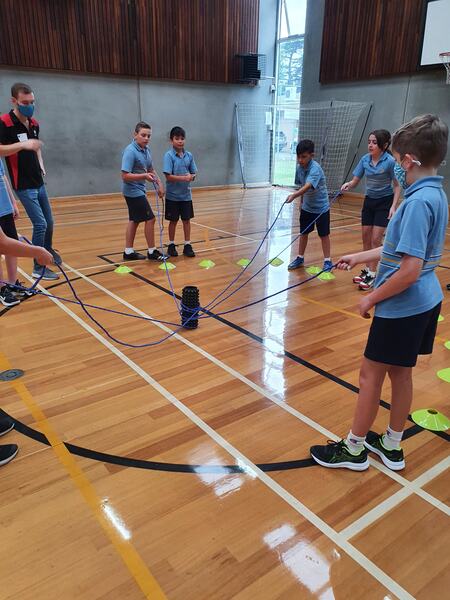
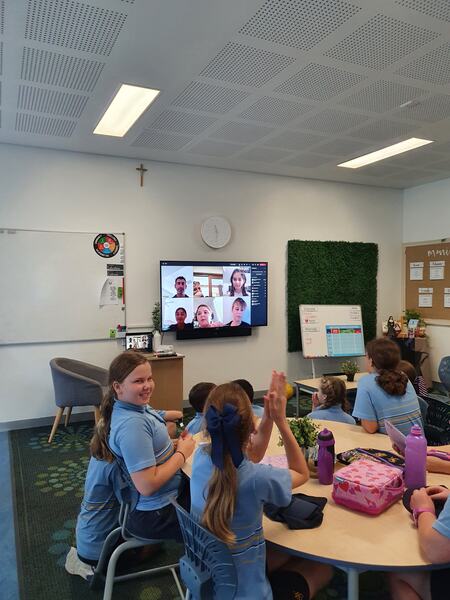
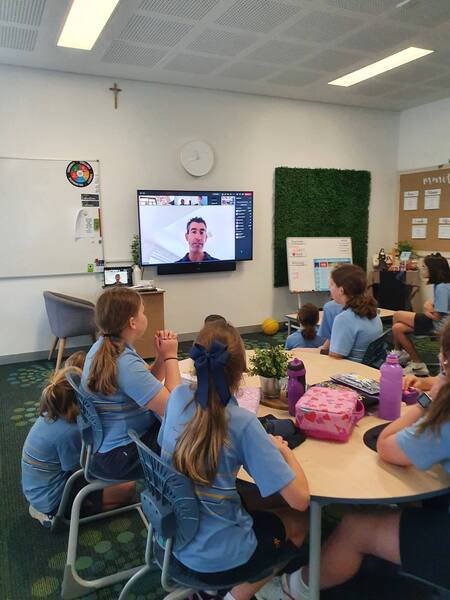
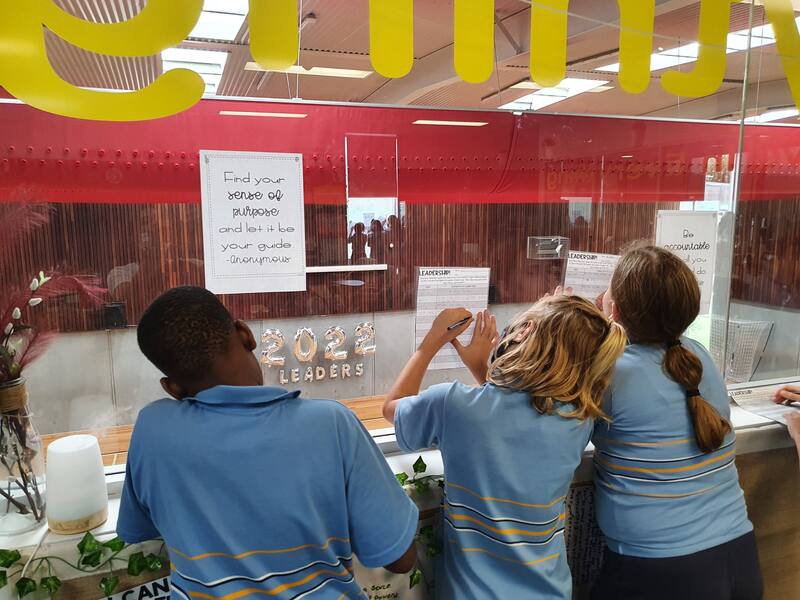
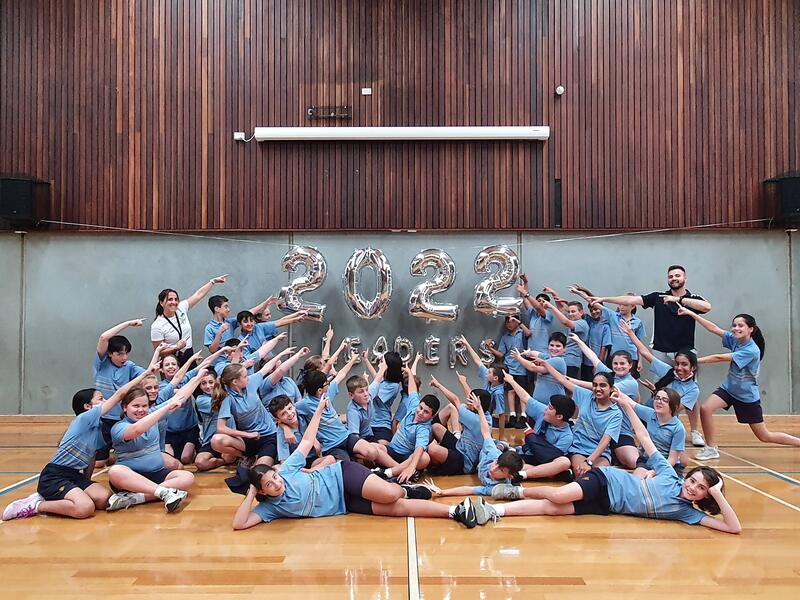


Social